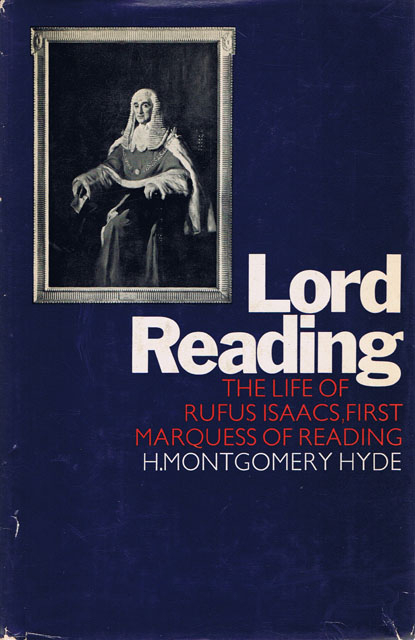
Out of Print
'Goodbye, Calcutta!' called a barefoot ship's boy as his vessel weighed anchor one May day in 1874. 'I shall return but not on the fo'c'sle' s head.' The boy was Rufus Isaacs, and forty-four years later he did return as His Excellency Lord Reading, Governor-General and Viceroy of India.
Rufus Isaacs was the first commoner to rise to the rank of Marquess since the Duke of Wellington; and few careers have been so varied and adventurous. As a young man he was 'hammered' on the Stock Exchange, yet when he died in 1935 he left over £250,000.
He achieved fame as an advocate and Member of Parliament, as a judge and diplomat. He was the first Jew to become Attorney-General, Lord Chief Justice of England, Ambassador to the United States, Viceroy of India and Foreign Secretary-and all after narrowly escaping ruin when he was involved, with Lloyd George and Lord Elibank, in the celebrated Marconi Scandal, on which Montgomery Hyde throws much interesting fresh light.
Amongst the trials in which Reading figured either as counsel or judge are those of the financier Whitaker Wright, who committed suicide in the Law Courts after the verdict; the poisoner Seddon, whose sentencing was one of the most amazing ever witnessed at the Old Bailey; and the Irish patriot Sir Roger Casement, whom Reading condemned to death for high treason.
Later, as Special Envoy and Ambassador in Washington during World War I, Reading was largely responsible for raising the first allied loan and for persuading President Wilson to agree to the rapid despatch of reinforcements to France. As Viceroy of India his rule coincided with Gandhi's civil disobedience campaign and the riots resulting from the visit of the Prince of Wales in 1921-2. Finally, in 1931, Reading ended his public career as Foreign Secretary in the National Government.